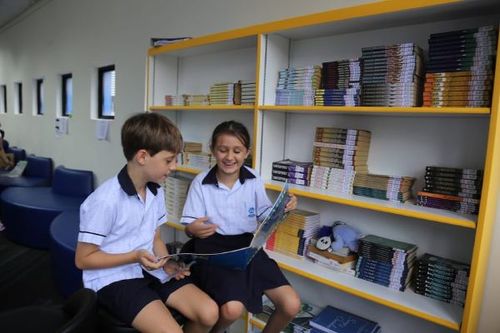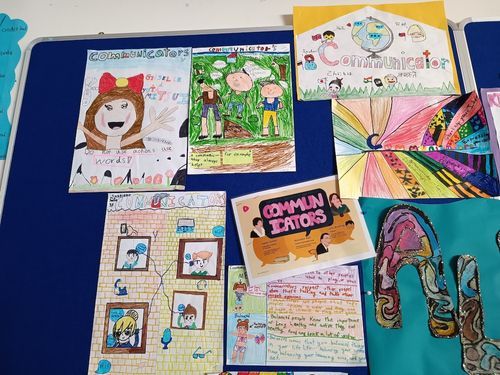Who doesn’t like a good story?
Whether you’re at home listening to your child telling you an interesting story or at school listening to your teacher’s storytelling or reading a plot twist, stories have the power to captivate, engage us and make us think.
Every culture has its own tradition of storytelling: even if the story is the same, the way it is told will have its own nuances and cultural norms. It may have different origins, translations or meanings within it.
A great storyteller, using vivid imagery, can change the way people think and act. As Dr. Howard Gardner, Professor at the Harvard Graduate School of Education, says, “Stories constitute the single most powerful weapon in a leader’s arsenal.”
In recent decades, leaders like Martin Luther King, M.K. Gandhi and Nelson Mandela have used their voices and stories to inspire people to action and revolution.
Storytelling traditions: past and present
Across the millennia, civilisations have understood the power of stories. From the hieroglyphs of Ancient Egypt to the tapestries of Medieval Europe and Chinese shadow puppetry, the majority of cultures have used storytelling as a way to depict real-life events and influence what people remember them for. Over time these stories evolve and develop, and history is recounted.
.jpg)
Ebony plaque of Menes (photograph); Source: Wikimedia Commons
Oral story-telling has its own legacy, and this is evident in many ancient cultures. It is likely to have been around ever since humans could speak a language. Our ancestors probably gathered around a fire and expressed their thoughts, beliefs, fears and heroism through oral narratives. It is often these stories that are passed on through generations. For some, the best way to learn about their culture, beliefs and history is to listen to elders, and to then pass this on to younger generations. Family traditions have been built through stories told.
As we approach the quarter-mark of the 21st century, governments, companies and institutions are looking towards preparing the people of today to suit future requirements. There is a need for the current generation to be aware of the workings and events of the world around them, relate to different people, cultures and situations, tell their own authentic stories and inspire people to take action from their stories. At present, there is a huge global push for sustainability and for protecting our planet. By gathering stories from across the world, this generation has the opportunity to make big changes. They can pass on their knowledge and experiences to others who will work together and continue to fight for the greater good.
Creating and Sharing our own Stories
Storytellers in society open up worlds of possibility through words and imagery. They allow us to connect to their journey and expand our own understanding of the world around us. They allow our minds to explore and help us build images.
When people consume the information in a story, it sparks their imaginations, and that results in discussions, ideas and potentially new initiatives, products and services. They often want to know more, to dig deeper into the story and keep it alive.
By sharing our personal story, people not only get to know us better, but we can add value to them by sharing our journey, successes and failures alike. We can seek new ideas and also find common ground.

The Rise of Social Stories
In the current times of enhanced digital connectivity, social stories have gained wide and viral popularity. Political, social and business leaders use the power of social stories to communicate their messages, demonstrate their vision and actions, and get the public to engage with them. Social media is all around us, and is a great sounding board for thoughts and ideas. It is this instant connectivity that makes the world such a rapidly changing place. Everything is available at the touch of a button. New ideas, developments and research can be shared. Stories can be told, and the world can remain connected.
Governments, businesses and social campaigns rise and fall through the stories that surround them. Fake news and fake stories are also a force to reckon with. It is important to learn how to spot misinformation and to understand that not everything you see on the internet is fact. Telling the right story at the right time becomes as important as telling a good story. This is a must-have skill for all our young people who want to be leaders and trail-blazers in their respective fields.
Striving For The Future
At One World International School, we have our own story to tell. We have students who hail from many different countries around the world and they bring a variety of cultures and mindsets with them. Our dynamic team of teachers promote communication, understanding and collaboration in and outside the classroom.
OWIS’ concept-driven learning approach enables our students to connect the dots through listening, questioning, discovering and testing out their theories/hypotheses.

The students who graduate from our institutions are not just taught to think outside-the-box when faced with problems, but also to vocalise their ideas and tell their individual stories with the help of their teachers and peers.
The school itself is diverse. The opportunities to learn from those who have come from different walks of life are endless. Children begin to develop their own life stories, taking in the lessons they learn from the people they are surrounded with. They are the authors of their own stories.
The OWIS story began years ago, and we want you and your children to be part of its next chapter. If you’re intrigued by our ability to nurture your child into a leader of the future, why not get in touch to find out more?














